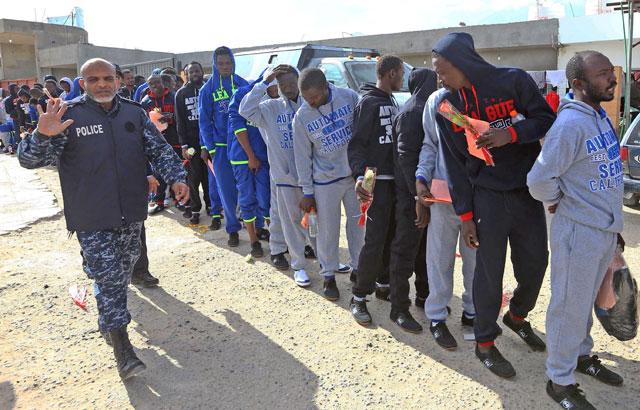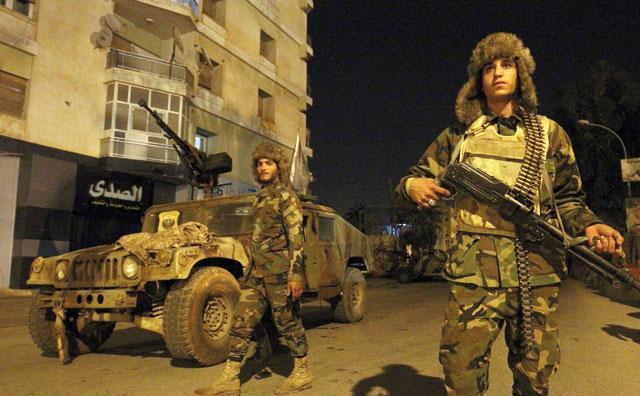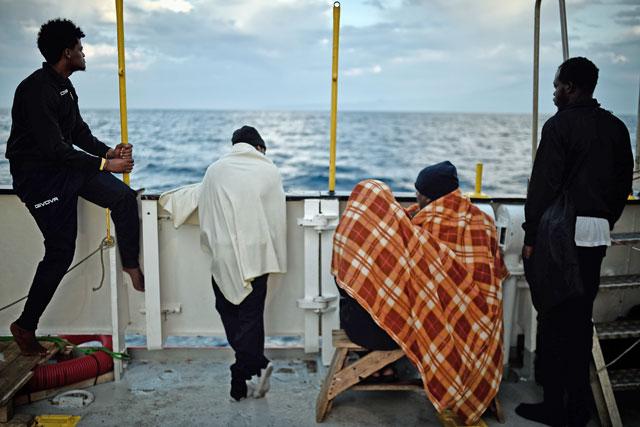You are here
France pushes UN to impose sanctions over Libya migrant crisis
By Reuters - Nov 28,2017 - Last updated at Nov 28,2017

African migrants hold their documents as they gather at a detention centre in the Libyan capital Tripoli on Tuesday ahead of being repatriated to their country of origin under a voluntary programme coordinated by the International Organisation for Migration (AFP photo)
UNITED NATIONS — France said on Tuesday it wanted the United Nations Security Council to consider imposing targeted sanctions on human traffickers operating in Libya after a video appearing to show African migrants sold as slaves sparked global outrage.
Several members of the 15-member Security Council expressed their horror at the video during a meeting on Tuesday, requested by France, to discuss human trafficking in Libya. The footage broadcast earlier this month by CNN showed what it said was an auction of men to Libyan buyers as farmhands and sold for $400 each.
French UN Ambassador Francois Delattre said the council should use sanctions to help stamp out trafficking in Libya.
"France will propose to assist the sanctions committee... in identifying responsible individuals and entities for trafficking through Libyan territory," Delattre told the council. "We count upon support of the members of the council to make headway to that end."
Under a sanctions regime set up in 2011, the Security Council is able to impose a global asset freeze and travel ban on "individuals and entities involved in or complicit in ordering, controlling, or otherwise directing, the commission of serious human rights abuses against persons in Libya".
France can propose names for targeted UN sanctions but needs to win consensus support within the Security Council's 15-member Libya sanctions committee.
Some council members expressed support for the possibility of imposing targeted sanctions, while others backed the council first issuing a statement. Diplomats said France, Britain and Sweden were drafting a statement.
"We all have a responsibility to act. This is not the moment to pass the buck," said Sweden's Deputy UN Ambassador Carl Skau.
Libya descended into chaos after a NATO-backed uprising in 2011 led to the overthrow and killing of leader Muammar Qadhafi, with two competing governments backed by militias scrambling for control of the oil-producing country. Daesh militants have also gained a foothold in the North African state.
People smugglers operating with impunity in Libya have sent hundreds of thousands of migrants to Europe, mainly Italy, by sea since 2014. Thousands have died during the voyages.
The Security Council last week adopted an Italian-drafted resolution urging tougher action to crack down on human trafficking and modern slavery worldwide.
Related Articles
UNITED NATIONS — Most armed groups involved in human smuggling and trafficking in Libya have links to the country's official security instit
LONDON — Landmark sanctions imposed by the United Nations on six people involved in the trafficking and smuggling of migrants in Libya sends
United Nations, United States — The UN Security Council is considering imposing the first-ever sanctions on migrant smugglers in Libya, targ

















